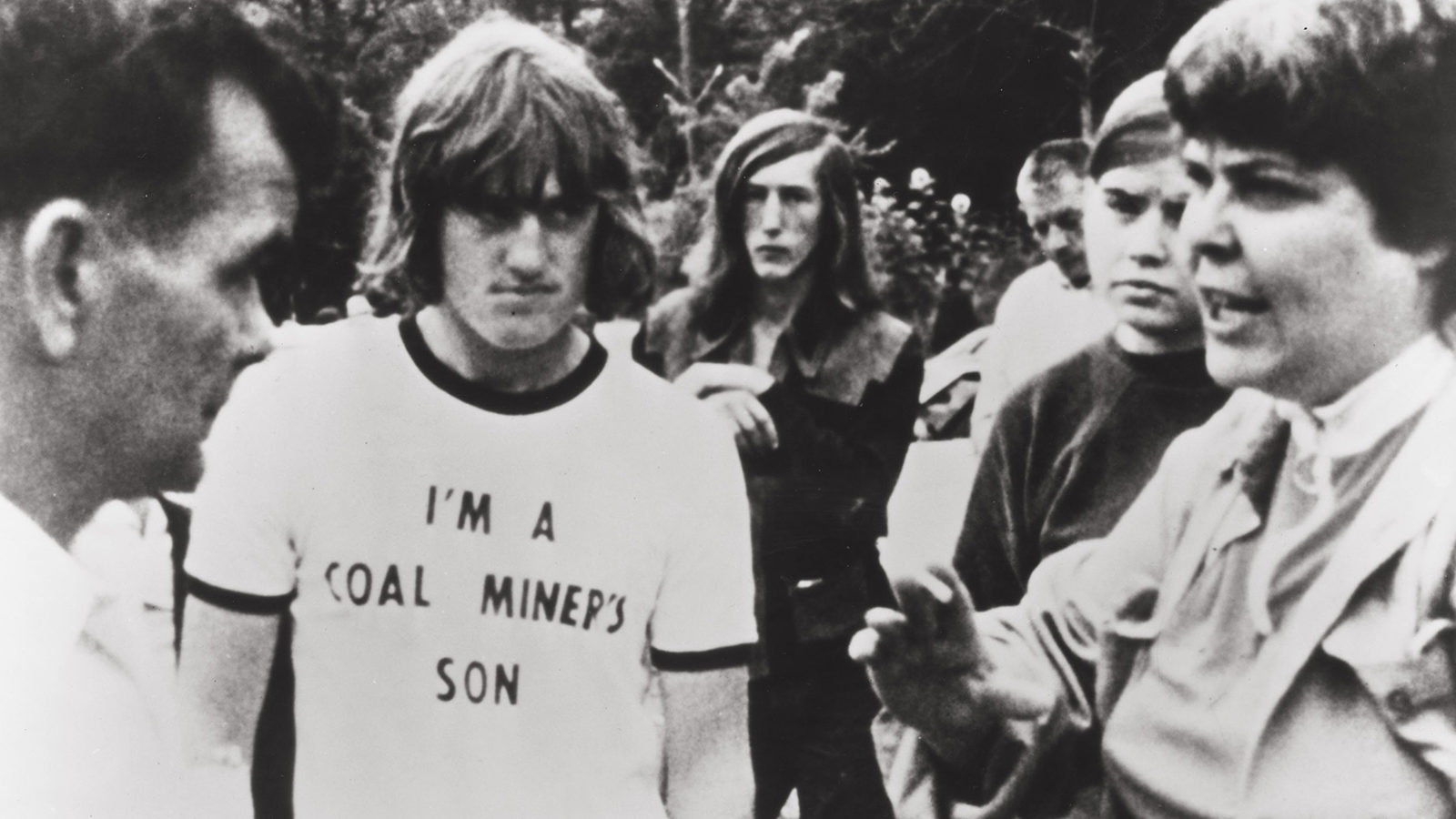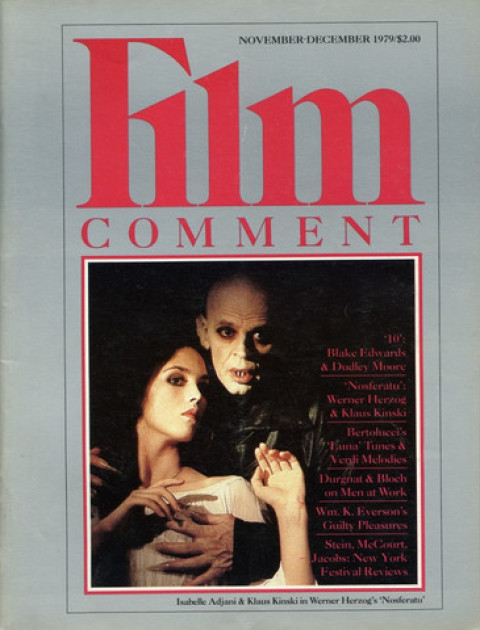By Amos Vogel in the November-December 1979 Issue

Independents: A Turning Point in Social Cinema
Amos Vogel reports from the first U.S. Conference for an Alternative Cinema
Turning points are rarely recognized as such. A case in point is the First U.S. Conference for an Alternative Cinema, held at Bard College in June: striking confirmation of the existence of a political cinema movement in the United States.

From the November-December 1979 Issue
Also in this issue
Quite clearly, its presence and scope had been unknown not merely to critics and academics, but even to the conference’s participants, close to 500 leftwing media activists engaged in the production, distribution, use or criticism of social issue films and videotapes. Their enthusiasm and determination, their production track records, sheer numbers, and wide geographic distribution provided strong evidence that this movement must be acknowledged as a significant development in American Cinema of the late Seventies, a harbinger of the coming social initiatives of the Eighties.
One need not really be all that surprised by this “unexpected” new grouping. Since the social problems that gave rise to the movement of the Sixties have not been resolved but exacerbated, appropriate reaction on the part of new, post-’68 generations was inevitable. The John Grierson Awards for Best Documentary Film have, in recent years, consistently been won by films within the ideological parameters of the conference: Attica, Lovejoy’s Nuclear War, I.F. Stone’s Weekly, Frameup: Martin Sostre, With Babies and Banners. One can go further: an overwhelming majority of all social issue films of the last decade likewise reflect generally leftwing viewpoints. Their topics are the socio-political problems of our day: nuclear power, pollution, the consumer society, alienation and exploitation, gender-racial/ethnic-sexual preference discrimination, the role of the CIA, Third World struggles, encroachments on democracy, the nature of the prison system, the plundering of the planet’s resources; and, as always, young people in their inordinate and stubborn fashion, once again attempt to change the sordid realities of our day.
Among the individuals and groups who sponsored and/or participated were Jack Willis (former Channel 13 program director, co-producer, The Great American Dream Machine, co-director, Paul Jacobs and the Nuclear Gang), the well-known author Sol Yurick, Peter Adair (Word is Out), Peter Biskind (film editor, Seven Days), Barbara Van Dyke and Jay Ruby (director and president, International Film Seminars), William Sloan (director, N.Y. Public Library Film Department), Fabiano Canosa (program director, Joseph Papp’s Film at the Public), Tom Luddy (Pacific Film Archives and N.Y. Film Festival Selection Committee), Liane Brandon (co-founder, feminist New Day Films collective), Rodolfo & Carlos Broullon (directors, Tri-Continental Film Center), Gary Crowdus (Cineaste editor), Tom Brandon (founder, Brandon Films), Barbara Kopple (Harlan County), DeeDee Halleck (ex-president, Association of Independent Video and Filmmakers), Karen Cooper (Film Forum), Paddy Whannel (head, Film Division, Northwestern; former director, BFI Education Department; ex-board member, New Left Review), Leo Oratfield, (Vice-President, Films Inc; former president, Contemporary Films), Steven Fischler and Joel Sucher, Pacific Street Film Collective (Red Squad, Frame-Up: Martin Sostre, and forthcoming studies of American anarchism), Lorraine Gray (With Babies and Banners), Norm Fruchter (Troublemakers), Robert Kramer (Ice, Milestones), John Jost (Speaking Directly), Harold Weaver (Third World Moving Images Project), Robert Van Lierop (A Lura Continua and Mozambique Film Project Coordinator), Leo Hurwitz (Native Land), Chuck Kleinhans (Jump-Cut), Saul Landau (Fidel, Interview with Allende), Jennifer Lawson (director, The Film Fund), George Pillsbury & David Crocker (The Haymarket Fund), Julia Lesage (Marxist/feminist critic), James Monaco (How To Read A Film, American Film Now), Julia Reichert (Growing Up Female, Methadone), Linda Blackaby (Neighborhood Film Project), Ernest Callenbach (Film Quarterly), George Stoney (Alternate Media Center), Ralph Torres (Third World Newsreel).
The range of participating organizations was astonishing; from the African Film Society to Cambridge political film showcase Angry Arts, from Bullfrog Films (pro-solar) to Star Film Library (rental of social change films to low-income community groups for tiny maintenance charge), from Public Interest Video (producers of the important anti-nuclear march videotape, first live public affairs program on public television whose editorial content was determined by an outside organization) to Appalshop Films (social history and culture of Appalachia), Iris Films (Lesbian production collective), Mariposa Films (Gay production collective), Cinta Borcua (Latin American), Green Mountain Post Films (anti-nuclear), the magazine In These Times, and La Cinemateca de Puerto Rica.
More important, even, were the unknowns the young men and women who are supplanting the older generations and who will be the leaders of tomorrow.
The purpose of the conference, clearly, was to make the invisible visible, to create a national network where there had been isolation before, to share knowledge, resources, information. Particular attention was paid to Public TV and The Film Fund, both, for different reasons, held to be insufficiently responsive/accountable to the field. Special panels dealt with form and aesthetics in political cinema, the role of criticism, the need for historical perspective.
Organized with immense skill and utmost devotion by Marc Weiss and the Organizing Committee, the conference succeeded in raising a number of basic issues. In the background looms the possibility of a loose, nonsectarian national confederation. Immediate prospects include the forthcoming Independent Focus series on Public Television (Marc Weiss as consultant) and the Independent Feature Festival, cosponsored by the Film Fund and the Film Society of Lincoln Center last month.







